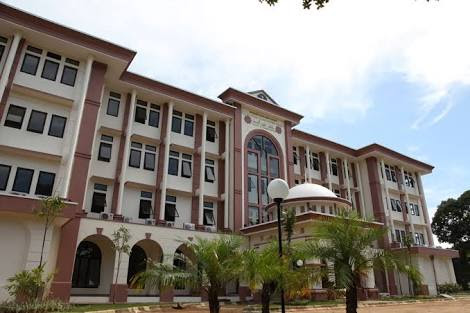OPTIMIZING MATHEMATICS LEARNING OUTCOMES USING ARTIFICIAL INTELLIGENCE TECHNOLOGY
OPTIMALISASI HASIL PEMBELAJARAN MATEMATIKA MENGGUNAKAN TEKNOLOGI ARTIFICIAL INTELLIGENCE
Abstract
The use of technology in learning has become inevitable in modern education. It plays an important role in optimizing the learning process, including in the context of mathematics learning. This study aims to describe the optimization of mathematics learning outcomes using Artificial Intelligence technology. This research uses a qualitative method with a descriptive approach. The instruments used were tests and interviews. The data collected was then analyzed using the interactive model analysis flow developed by Miles and Huberman, namely reducing data, presenting data, and verifying/concluding. The results showed that by using Artificial Intelligence (AI) technology in the learning process, lecturers can provide experiences tailored to students' individual needs, improve their understanding of mathematical concepts, and provide fast and precise feedback. Thus, the use of AI technology can optimize mathematics learning.
Downloads
References
Cantos, K. F. S., Giler, R. C. V., & Magayanes, I. E. C. (2023). Artificial intelligence in language teaching and learning. Ciencia Latina Revista Científica Multidisciplinar, 7(4), 5629–5638. https://doi.org/10.37811/cl_rcm.v7i4.7368.
Cormarkovic, T., & Drazeta, L. (2022). Artificial intelligence applications in human resource management. International Scientific Conference On Information Technology and Data Related Research, 414–420. Serbia: Singidunum University. https://doi.org/10.15308/Sinteza-2022-414-420.
Creswell, J. W. (2014). A concise introduction to mixed methods research. Thousand Oaks, California: SAGE Publications.
Hakim, L. (2022). Peranan kecerdasan buatan (artificial intelligence) dalam pendidikan. Retrieved from https://ppg.kemdikbud.go.id/news/peranan-kecerdasan-buatan-artificial-intelligence-dalam-pendidikan.
Hwang, S. (2022). Examining the effects of artificial intelligence on elementary students’ mathematics achievement: a meta-analysis. ICT in Education—Between Risks and Opportunities, 14(20). https://doi.org/10.3390/su142013185.
Miles, M. B., Huberman, A. M., & Saldana, J. (2014). Qualitative data analysis. A Methods Sourcebook (3rd). Los Angeles, London, New Delhi, Singapore, Washington DC: SAGE Publications.
Muttaqin, Arafah, M., Jaya, A. K., Suryawan, M. A., Gustiana, Z., Banjarnahor, A. R., & Fajrillah. (2023). Implementasi artificial intelligence (AI) dalam kehidupan (1st ed.). Langsa: Yayasan Kita Menulis.
Pardamean, B., Suparyono, T., Anugrahana, A., Anugraheni, I., & Sudigyo, D. (2022). Implementasi team-based learning dalam pengembangan pembelajaran online berbasis artificial intelligence. Scholaria: Jurnal Pendidikan Dan Kebudayaan, 12(2), 118–126. https://doi.org/10.24246/j.js.2022.v12.i2.p118-126.
Roihan, A., Sunarya, P. A., & Rafika, A. S. (2020). Pemanfaatan machine learning dalam berbagai bidang: review paper. IJCIT (Indonesian Journal on Computer and Information Technology), 5(1), 75–82.
Rulyansah, A., Mardhotillah, R. R., Budiarti, R. P. N., Afandi, M. D., & Aisah, P. L. (2023). Pengembangan profesional pendidik SD dalam penggunaan aplikasi sekolah literasi digital berbasis artikulasi artificial intelligence. Indonesia Berdaya, 4(1), 109–118. https://doi.org/10.47679/ib.2023383.
Sadewo, Y. D., Purnasari, P. D., & Muslim, S. (2022). Filsafat matematika: kedudukan, peran, dan persepektif permasalahan dalam pembelajaran matematika. Inovasi Pembangunan: Jurnal Kelitbangan, 10(1), 15–28.
Santoso, J. T. (2023). Kecerdasan buatan (artificial intelligence). Semarang: Yayasan Prima Agus Teknik.
Saputra, H., Utami, L. F., & Purwanti, R. D. (2023). Era baru pembelajaran matematika: menyongsong society 5.0. Indiktika: Jurnal Inovasi Pendidikan Matematika, 5(2), 146–157.
Siagian, H. F. A. S. (2023). Mengenal revolusi industri 5.0. Jakarta: Kementerian Keuangan Republik Indonesia.
Tulak, T. (2017). Profil pemecahan masalah matematika berdasarkan gaya belajar siswa kelas VIII SMP Negeri 16 Makassar. [Tesis]. Universitas Negeri Makassar.
Tulak, T., Langi, W. L., Hakpantria, & Rante, L. T. (2023). Identify student errors in solving story problems on fractions. AIP Conference Proceedings, 150006-1-150006–150008. Toraja, Indonesia: AIP Publishing. https://doi.org/10.1063/5.0170803.
Tulak, T., Rianto, W., Stevania, V., & Rubianus. (2022). Analysis of misconception of elementary school teacher study program UKI Toraja Lectures about fraction. Edumaspul: Jurnal Pendidikan, 6(2), 8. https://doi.org/10.33487/edumaspul.v6i2.4139.
Tulak, T., Tangkearung, S. S., & Selin, R. (2022). Analisis kemampuan berpikir tingkat tinggi siswa pada mata pelajaran matematika. Transformasi Nilai-Nilai Kearifan Lokal Berbasis Teknologi, 1, 10. Makale: UKI Toraja Press.
Tulak, T., Tangkearung, S. S., Tulak, H., & Paseno, E. W. (2023). Application of meaningful learning model to improve student’s learning outcomes. In Online Conference of Education Research International (OCERI 2023), 775, 664–675. Paris: Atlantis Press. https://doi.org/10.2991/978-2-38476-108-1_66.
Zhou, J., Liu, J., & Zhao, X. (2022). Artificial intelligence technology empowering mathematics education in the context of inclusive Education. Frontiers in Psychology, 13.
Copyright (c) 2024 Topanus Tulak, Rubianus, Sarah Maramba'

This work is licensed under a Creative Commons Attribution 4.0 International License.

